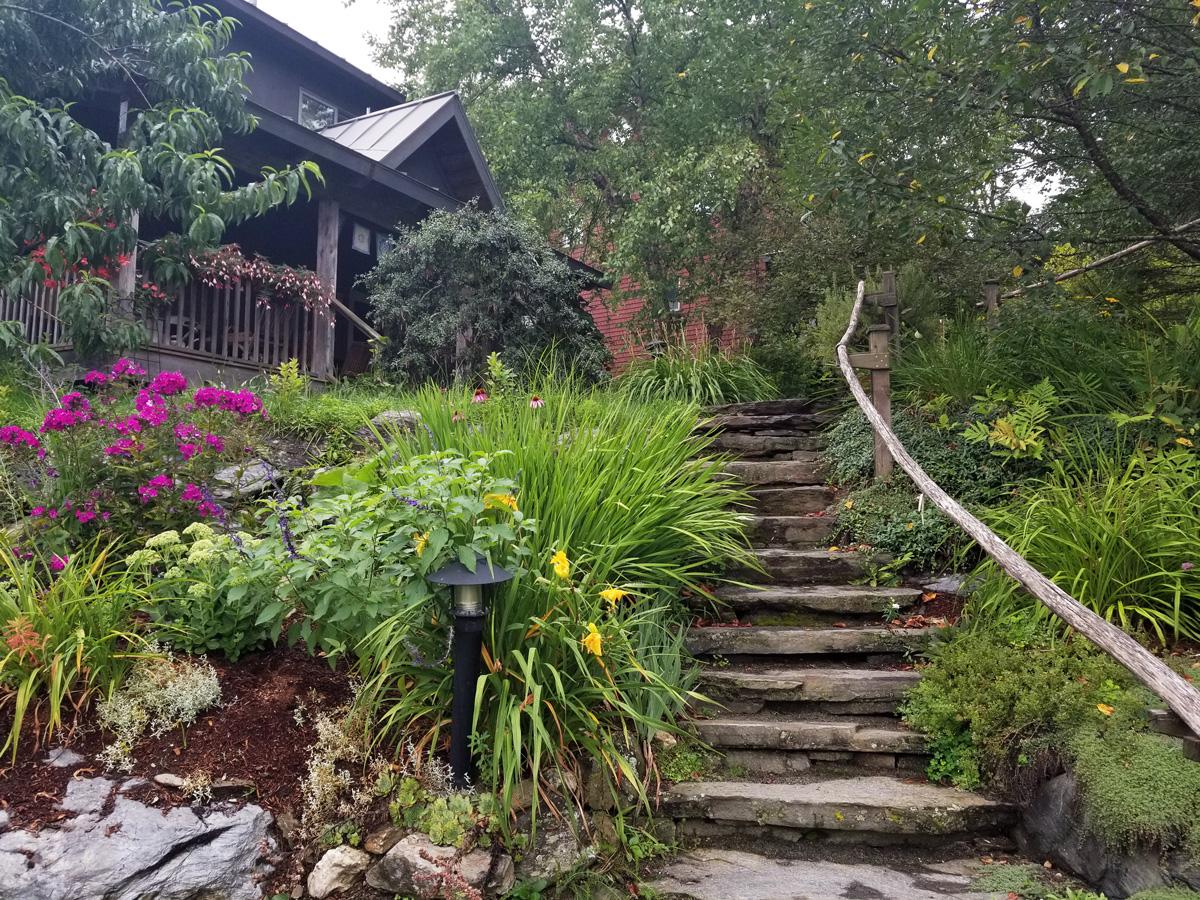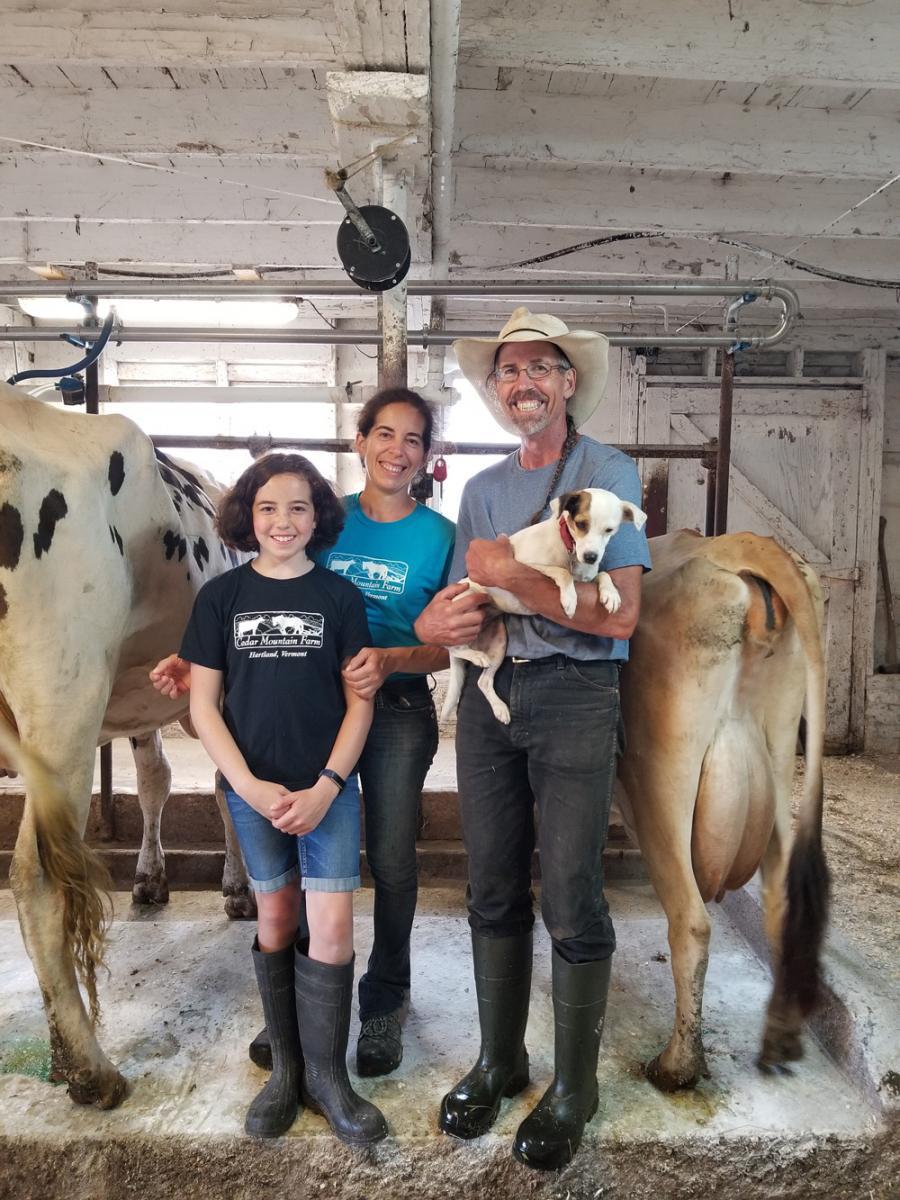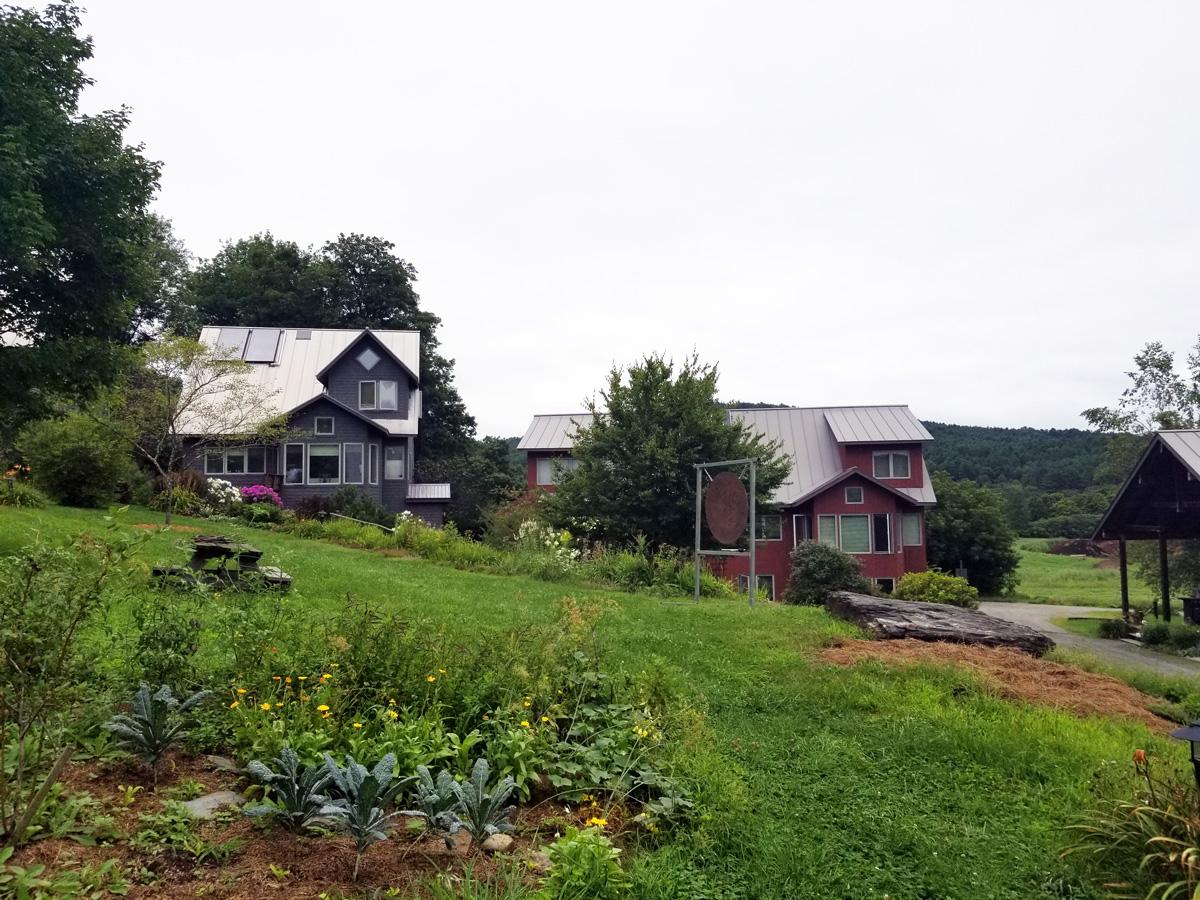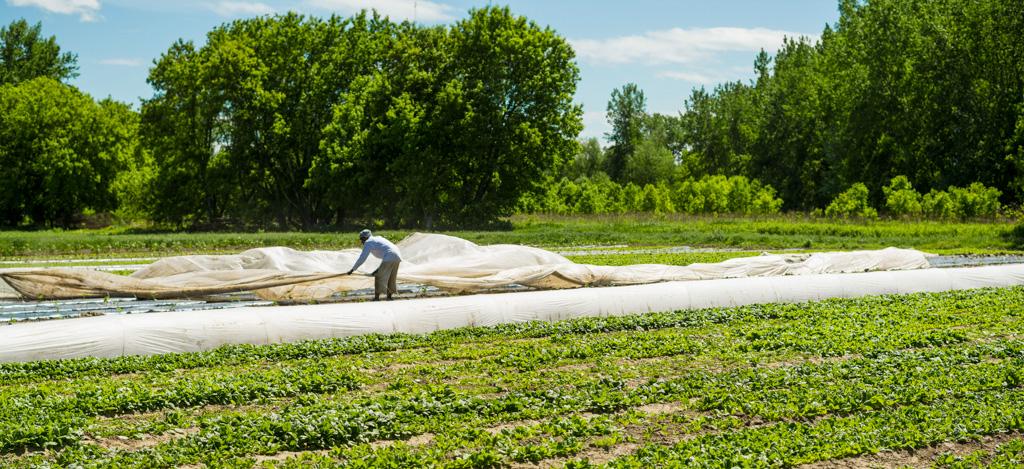
When I arrived at Stephen Leslie and Kerry Gewalt’s dairy farm on a cloudy Sunday afternoon in August, their 10-year-old daughter Maeve was busy clipping her Jersey cows’ coats to get them ready for showing at the Cornish Fair. Clipping can be a tricky job, Kerry told me, but Maeve has been showing cows with 4-H for 3 years now, and she’s getting the hang of it. As we stood outside the barn, Maeve patiently explained to me the difference between showing in 4-H and “open” showing, and introduced me to two of the farm’s summer yearlings, Colette and Velda.
Stephen, Kerry, Maeve, and their 46 Jersey cows reside at Cedar Mountain Farm in Hartland, Vermont. Also living on the farm are several chickens, 4 Fjord horses (Cassima, Tristan, Isolde and Elsa), and one small but feisty Jack Russell Terrier named Maisy.
Stephen and Kerry have been farming together since 1995, and moved from Plainfield, New Hampshire to the land they’re farming today in Hartland in 1998. They make their living selling milk from their Jersey herd, and, along with other partners, making cheese sold under the Cobb Hill Cheese label. Like many of Vermont’s farms, Cedar Mountain is diversified. In addition to the dairy and cheesemaking operations, they raise bull calves to sell as beef, grow vegetables in their 3-acre market garden, and make compost they sell primarily to neighboring farmers and home gardeners.

I had arrived during afternoon chores, so as we talked, Stephen brought the horses in from the pasture, with help from Maisy and her not-quite-herding-dog’s instincts. Maisy always needs a job to do, Stephen explained, and although Jack Russell’s were not bred to be herding dogs, she likes to help with bringing the cows and horses in each day.
We stand outside the barn next to a suite of horse-powered farm implements, which look like antiques but are in regular rotation, while Stephen tells me the story of Cobb Hill, the cohousing community of which Cedar Mountain Farm is an integral part. Cobb Hill was founded by Donella “Dana” Meadows who, in her time, was an environmental professor at Dartmouth and author of The Limits to Growth, a groundbreaking study of the earth’s capacity to withstand the impacts of human population and economic expansion. It was this type of deep systems thinking that inspired Dana to start Cobb Hill in 1997, founded on the principles of sustainability, resilience, and intentional living.
By 2002, construction was complete on 23 homes, all built for maximum solar gain and with the overall goal of a substantially reduced carbon footprint. Today, the cohousing community is home to 23 families and multiple working farms, including a sugaring operation and a cheesemaking business, in addition to Cedar Mountain.
Unlike more traditional models of residential development, Cobb Hill’s 23 homes are clustered together on the hillside rather than being surrounded by individual lawns and driveways. Clustering the homes, Stephen told me, allows the families to share resources, like the single wood-fired boiler that heats them all in the winter, and the common house where everyone can do laundry and share meals. It also allows for as much working land (i.e. farm and forest land) as possible to be preserved.
And preserve it they did. When Cobb Hill was founded, the community worked with the Upper Valley Land Trust to sell the development rights on all of the land except for the few acres where the homes sit. Through the sale of the development rights, they were able to permanently subsidize one of the housing units to make it affordable for a farm family to live there. Matching funds provided in part by the Vermont Housing and Conservation Board (VHCB), allowed for two additional housing units to be subsidized, ensuring that they too will remain affordable for lower income families.
Back on the farm, while Stephen gets back to chores and Maeve shears diligently in the barn, I wander through one of the large community gardens, where unique varieties of tomatoes flourish, and deep green sweet potato vines cover the ground. Things are thriving here, and I think of my own sometimes neglected garden at home, with just my two hands to tend it. Any gardener will tell you it’s a labor of love, but here it seems many hands really do make light work, or at least a bit lighter.
Up on the hill, a dirt path winds between the houses, climbing up sturdy stone steps among flower gardens and succulents. Maybe it’s just the bounty of late summer, but life seems to be flourishing here too, in the nooks and crannies that might otherwise be paved driveways or sidewalks.
Of course, there are sacrifices made here too. Stephen explains that everyone in the community owns the farmland and buildings together, except those that he and Kerry have built themselves since they moved there nearly 20 years ago. It’s wonderful that because everything is collectively owned, they only had to buy 1/23 of the land, and they benefit from subsidized housing due to the sale of the development rights. On the other hand, Stephen says, they have invested 20 years in the land here, and if they were to leave, all they could take would be the equipment they’ve purchased and the systems they’ve created. The fertility of the soil, and the land they have stewarded with care over those two decades, would remain. Because of the unique ownership structure, it may also be more difficult to find a buyer in the future who fits the bill, and to whom the cohousing model appeals.
In the meantime, Stephen, Kerry and Maeve seem content with the life they’ve built among 22 other like-minded families. In 2013, Stephen wrote a book, published by Chelsea Green, titled The New Horse-Powered Farm. Talking with him on the farm that day, his love of working with draft horses was obvious, and he says the horses have helped keep farming alive for him. Kerry has made a name for herself in the dairy breeding world with her skill in herd improvement, and has sold several heifers in national sales in recent years.
As for Dana, Stephen told me, in addition to being a scientist, writer, and professor, she was also an admirer of Mahatma Gandhi. Gandhi, as part of his non-violent movement for an independent India, spun cloth on a charkha (or spinning wheel) for an hour each day, as a symbolic vigil and a form of resistance against British rule. Through his teachings, spinning “khadi” (or handspun cloth) was elevated to represent an ideology of freedom, self-reliance, and self-governance. Dana carried this idea throughout her life and today, it is reflected in the community the Cobb Hill has become. Like Gandhi with his spinning wheel, Stephen said, Dana wanted to create a practical expression of the world we’d like to see.
Later, back in my office, I read a bit more about Dana Meadows and about Foundation Farm, the aptly named farm where she resided before founding Cobb Hill in the late 1990s. I came across this passage in an entry from her letters in May of 1999, as she was preparing to make the transition to Cobb Hill, along with several other families:

Dear Folks,
Twenty-seven years ago today Dennis and I moved to Foundation Farm. Now it is for sale. And I am soaking up my last May here.
May! I swore long ago never to leave this farm in May, never to miss a moment of this wonderful, magical month. (When the black flies appear and the crabgrass seeds germinate by the gazillion all over the garden.) Suddenly everything is green, green, green. The place smells of lilacs. Orioles and indigo buntings serenade me as I work in the garden. Last night we had a fresh-picked salad for supper (three kinds of lettuce, arugula, tatsoi, and mint) and a rhubarb meringue pie. The calves are galumphing around in crazy delight in a knee-high pasture. The chickens have been devouring the dandelions I’m pulling out of the asparagus patch, so the yolks of their eggs are deep yellow. The cutting garden is blue with irises and pansies; the edges of the woods are full of the carnation-smell of wild phlox.
As Jim said the other night, after he came back from a sunset run in the greening hills, as we were all standing around in the kitchen, nibbling on fresh-steamed asparagus, “I think my quality of life may never be this high again!”
We’re scrambling with our gardens. Stephen and Kerry are off to an earlier start than ever with their three acres of vegetables. Their Saturday farmers market starts next week, and their CSA deliveries start the first weekend of June. We mostly don’t see them now, once the sun’s up in the morning, until the sun goes down at night — except on the run, as they come by to pick up a tool or water the hoop house. I did see them last night, followed by a dutiful procession of calves with tinkling bells around their necks, headed into a new pasture.
Nearly twenty years later, one could say not much has changed. Stephen and Kerry (and now Maeve, too) continue to bring in their contented cows from the pasture each day and sell their vegetables at the farmers market each week. And while physically gone, Dana is hardly missing from Cobb Hill. Her ideas, lessons, and legacy live on in this land and the people who care for it every day.
Like Gandhi and his spinning wheel, this community’s dedication to intentional living and self-reliance manifest not only in their stated principles of unity, beauty, community, equity, sustainability, and synergy, but in so many tangible forms. The birth of new lambs each spring. Meals prepared together and shared among families. Neatly stacked wood, stored in wait for winter.
Collective living presents its own set of challenges, no doubt, but if the aim of Cobb Hill is a practical expression of the kind of world we’d like to see, it’s hard to envision a better blueprint.

